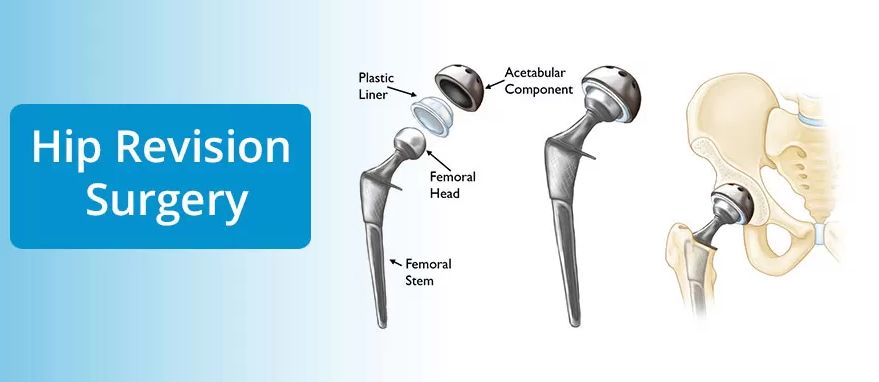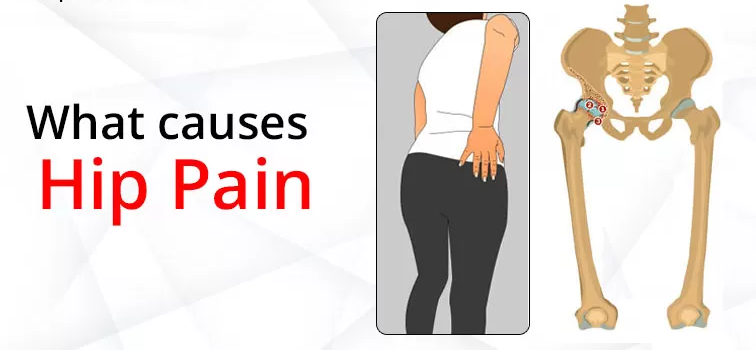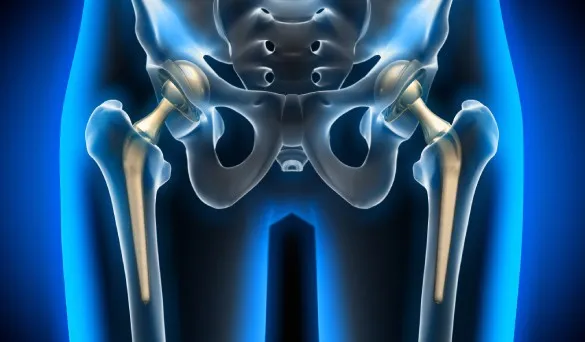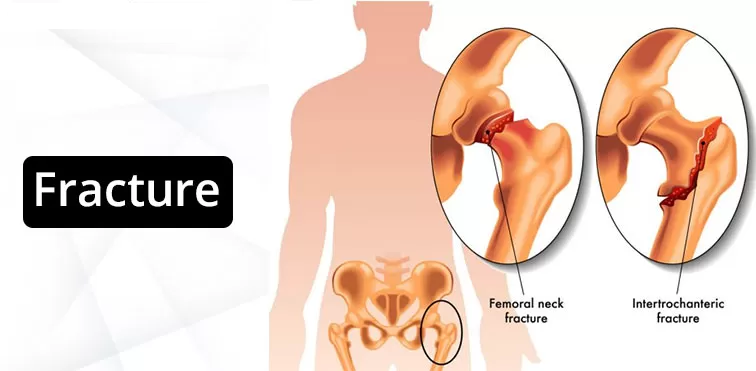Revision Hip Replacement Surgery
Get the advanced Revision Hip Replacement Surgery in Sri Ganganagar by Dr. (Major) Pulkit Thatai. Dr. Pulkit Thatai is most experienced Hip replacement Surgeon in Sri Ganganagar. Call now +91-
Revision Hip Replacement Surgery in Sri Ganganagar
Hip revision surgery is a procedure aimed at repairing a damaged artificial hip joint, known as a prosthesis, which may have deteriorated over time due to factors such as infection or normal wear and tear. Its primary goal is to restore normal function to the hip joint.
Artificial hip implants have proven highly effective in improving hip joints affected by various conditions like injury or arthritis. However, these implants have a finite lifespan and typically last between 10 to 15 years, depending on the patient’s level of activity. Patients who undergo hip surgery are usually over the age of 55 and may have significant hip arthritis.
If you’re considering hip surgery and seeking an experienced surgeon, Dr. Pulkit Clinic offers specialized care for revision hip surgery. You can easily schedule an appointment online to consult with our expert doctor and explore your treatment options.

What causes hip pain?
The main reason for hip revision surgery is to patch an artificial hip implant that may no longer be firmly connected to the bone, resulting in irregular movements that cause discomfort to the patient. Hip revision surgery is an effort to heal the hip and return it to a state where it can operate normally.


What are the benefits of hip revision surgery?
The primary benefit of undergoing hip revision surgery is the alleviation of pain. Numerous patients discover that, beyond enhancing the aesthetics of the hip and leg, this procedure enhances the mobility, strength, and coordination of the affected leg and hip. By undergoing revision surgery, patients may regain the ability to engage in daily activities without experiencing hip discomfort. It’s essential to note, however, that the success of hip revision surgery hinges on the patient’s commitment to diligently follow their post-surgery recovery program.

Dr. (Major) Pulkit Thatai
If you find yourself without any other options for consultation, Dr. Pulkit Thatai in Sri Ganganagar is the ideal choice for you. Renowned as one of the top knee replacement surgeons, he is your go-to person for any knee-related concerns.
Whether you seek guidance on resolving knee issues or have queries about knee replacement surgery, Dr. Pulkit Thatai will address all your concerns comprehensively.
With a track record of over 10000 successful surgeries throughout his career, Dr. Pulkit Thatai is adept at resolving your knee problems effectively. Moreover,Dr. Pulkit Thatai Clinic is well-equipped with all the essential facilities, ensuring you receive the best care possible.”
When Revision Total Hip Replacement Is Recommended
Infection
Infection poses a potential risk for any surgical procedure, including total hip replacement. Infections occur when bacteria adhere to and accumulate around the surface of the prosthesis. These infections can arise during your hospital stay, after discharge, and even years later. In the event of an infection in a total hip replacement, it can cause considerable discomfort, and the implant may begin to detach from the bone. Even if the implant remains securely attached, symptoms such as pain, weakness, and drainage from the infected area may persist. Since antibiotics alone often cannot effectively eradicate bacteria from the joint replacement, revision surgery is typically necessary. Revision surgery for an infected hip replacement can be approached in several ways. Your doctor will assess various factors, including the type of bacteria involved, the duration and severity of the infection, and your personal treatment preferences, to determine the most suitable course of action.
Fracture
A periprosthetic fracture refers to a broken bone that occurs in the vicinity of an implant. These fractures typically result from falls and frequently necessitate revision surgery. Your doctor will evaluate various factors to determine if revision is necessary, including the extent of bone involvement, implant stability, and the location of the fracture.

Implant Wear and Loosening
For a complete hip replacement to function effectively, it’s crucial that the implant remains securely affixed to the bone. Initially, during the surgery, hip replacement components were either cemented into place or inserted with a press-fit technique, allowing bone integration. However, bone may sometimes fail to adequately grow onto press-fit components. Additionally, over time, both cemented and press-fit sections that were once firmly attached to the bone may loosen, resulting in hip pain. The exact cause of implant loosening isn’t always straightforward, but contributing factors may include repetitive high-impact activities, excessive body weight, and wear of the plastic liner between the ball and metal cup components. Furthermore, younger patients who undergo initial hip replacement surgery may outlast the expected lifespan of their artificial hip, increasing the long-term risk of requiring revision surgery due to loosening or wear. In certain cases, tiny particles generated from the wear of the plastic liner around the hip cup can accumulate in the joint area and trigger the body’s immune response. This immune reaction can lead to osteolysis, a condition where the bone surrounding the implant deteriorates, causing instability or looseness of the implant. Osteolysis often results in the immune system attacking healthy bone tissue around the implant, leading to a condition known as osteolysis.
Reasons for Revision Hip Surgery
The main purpose of hip revision surgery is to address an artificial hip implant that may have become loosely attached to the bone, leading to irregular movements and discomfort for the patient. The goal of hip revision surgery is to restore the hip to a functional state where it can operate normally. Individuals require hip replacement surgery either due to wear and tear on the hip implant or due to complications arising from the initial surgery. Indications that a person may require revision surgery include sudden onset pain, swelling, or difficulty moving the joint.
Things to have in mind when thinking for revision hip surgery
Patients should also engage in home activities to facilitate a swifter recovery post-surgery. Implementing a few simple adjustments around the house and arranging for assistance from someone reliable during the weeks following the procedure are advisable. It’s important to consult with your surgeon regarding the option of donating blood for the surgery and to schedule appointments with your primary care physician and dentist. If you are a smoker, making efforts to quit or reduce smoking can help mitigate surgical risks and enhance recovery time. Removing loose carpets to prevent tripping hazards and ensuring that all electrical cables are securely taped down are essential safety measures. Additionally, stocking up on canned and frozen food items and organizing supplies within easy reach, between waist and elbow height, can further aid in post-surgery convenience.
Hip revision surgery entails a period of adjustment, during which patients are encouraged to engage in leg exercises to reduce swelling and elevate their legs above heart level while resting. Initially, patients may utilize a walker for mobility post-surgery, and it’s important to acknowledge that certain daily activities like entering a car or climbing stairs may pose challenges. Around one month post-surgery, the doctor will conduct X-rays to monitor healing progress, with patients typically achieving pain-free walking without a limp in the hip after approximately six months.
The success of any surgery relies significantly on the expertise of the surgeon. For those seeking guidance on hip replacement surgery, Dr. Pulkit, an Orthopaedic Specialist, offers comprehensive care and medication management to facilitate speedy recovery. A skilled surgeon will discuss all available treatment options, tailoring the most effective hip revision surgery based on factors such as age, activity level, and joint health. Dr. Pulkit Clinic in Jaipur is renowned for providing top-notch hip replacement surgeries. Patients can benefit from expert advice from the comfort of their homes by consulting with doctors at Dr. Pulkit Clinic to address any health-related concerns. For patients seeking prompt resolution of common issues, Dr. Pulkit Clinic stands as the optimal choice, particularly due to its extensive experience in hip joint treatments. With Dr. Pulkit expertise at the helm, patients can trust in swift resolution of their concerns.
